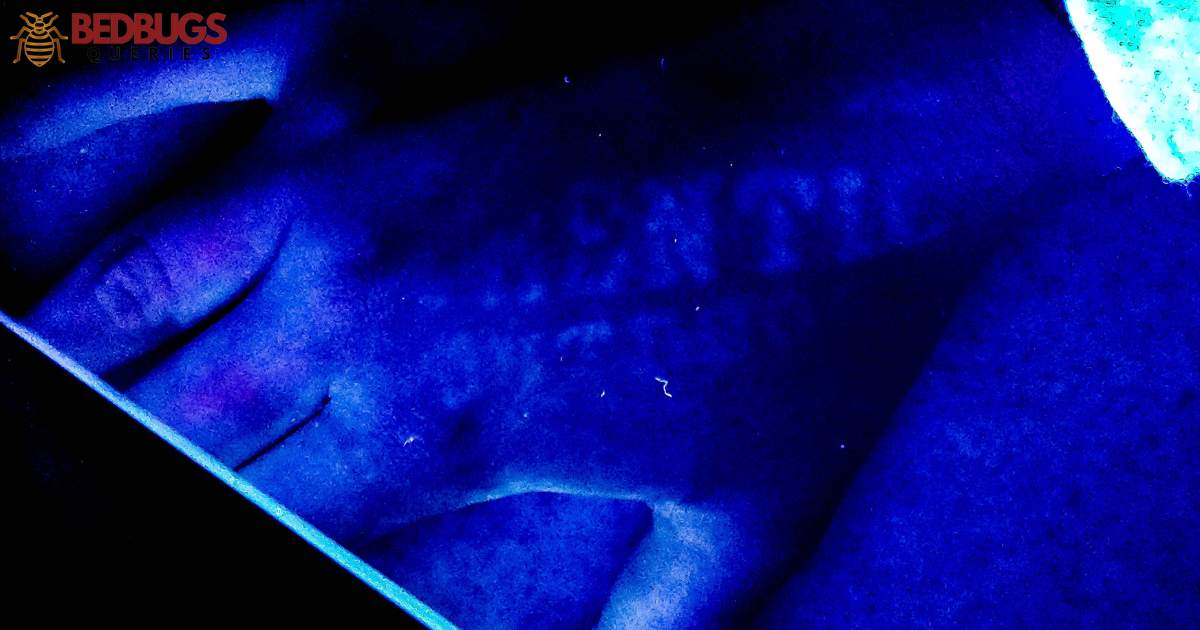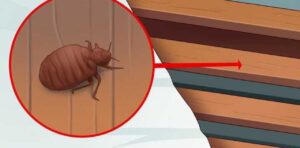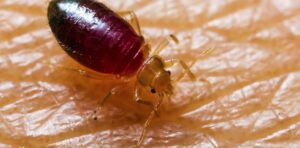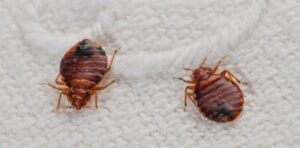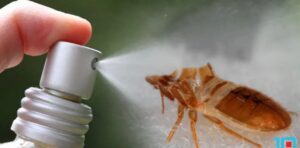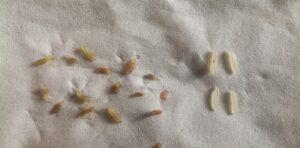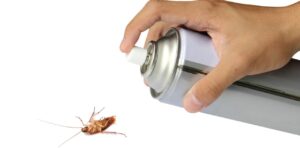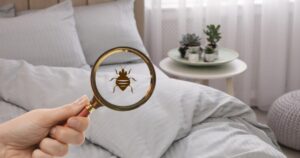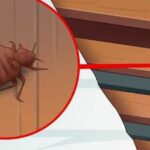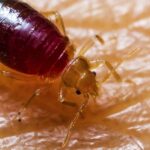Revolves around the use of black light as a tool to detect bed bug infestations. It’s a common inquiry among those concerned about these pesky pests. Understanding whether or not bed bugs exhibit any luminescence under black light is key to effective pest control.
The mysterious world of bed bug detection unfolds with the question “Do Bed Bugs Glow Under Black Light?” Imagine having a secret tool that reveals these hidden nocturnal creatures, making it easier to identify and address infestations. The answer to this question can provide a unique insight into a potential method for detecting these troublesome bugs.
To delve deeper into the topic of “Do Bed Bugs Glow Under Black Light?” it’s important to explore the science behind it. Some studies suggest that bed bug eggs, nymphs, and adult bugs may emit a faint fluorescence under certain wavelengths of black light
What Does a Black Light Do to Bugs?
A black light, also known as an ultraviolet (UV) light, emits electromagnetic radiation that falls outside the visible spectrum for humans. When it comes into contact with certain substances, it causes them to fluoresce or emit light. Many substances, including some insects, can react to black light.
Do Bed Bugs Like Dark Rooms?
Bed bugs are notorious for their preference for dark, hidden spots, which is why they are often found in bedrooms, particularly in and around your bed. They are nocturnal creatures and are most active at night. While they don’t necessarily “like” dark rooms, they do thrive in them.
How Do Bed Bugs Start?
To understand how bed bugs react to black light, it’s essential to know how they start. Bed bugs typically infest a home by hitchhiking on clothing, luggage, or used furniture. Once they enter your home, they seek out hiding spots near their primary food source—humans. They often feed on human blood as you sleep, which is why mattresses and bed frames are frequently associated with them.
What Do Bed Bugs Do When They See Light?
Bed bugs are photophobic, which means they are averse to light. When exposed to light, they will typically scatter and seek refuge in dark, hidden places. This behavior is why you might not notice bed bugs during the day but may experience their bites at night.
Can Black Lights Detect Bed Bugs?
The use of black lights to detect bed bugs is a popular method. Bed bugs themselves do not emit any visible light under black light. However, their excrement and shed skins do fluoresce under UV light. By carefully inspecting your bedding, mattress seams, and nearby furniture with a black light, you may spot these telltale signs of a bed bug infestation.
| Questions | Answers | Keywords |
| What does black light reveal? | Bed bug excrement and shed skins | Bed Bugs, Black Light, Detection |
| Are bed bugs attracted to UV light? | No, they’re photophobic | Bed Bugs, UV Light, Behavior |
| Can black light eliminate bed bugs? | No, it aids in detection | Bed Bugs, UV Light, Control |
| How do bed bugs react to light? | They scatter and seek darkness | Bed Bugs, Light Aversion, Behavior |
| What natural methods are effective? | Diatomaceous earth, heat treatment | Bed Bugs, Natural Remedies |
| What’s the key to 100% elimination? | Professional pest control | Bed Bugs, Complete Eradication |
Are Bugs Attracted to Black Lights?
Similar to many other insects, bed bugs are not drawn to black lighting. Rather, they are indirectly detected with the help of dark lights. Bed bugs dislike light, therefore although certain insects catch on to UV light, most of them tend to stay away from it.
What Smells Do Bed Bugs Hate?

Bed bugs are known for their strong sense of smell, which they use to locate their hosts for feeding. While they don’t “hate” specific smells, there are scents that can deter them. Some scents that may repel bed bugs include lavender, tea tree oil, and peppermint. These scents can be used in essential oil form or as part of DIY sprays to create a less inviting environment for bed bugs.
What Kills Bed Bugs Naturally?
If you’re dealing with a bed bug infestation, you may be interested in natural methods of control. Some natural remedies include diatomaceous earth, which is a fine powder that can dehydrate and kill bed bugs, and heat treatment, which involves raising the temperature in your home to lethal levels for the bugs.
What Is the Bed Bug Killer?
When it comes to bed bug killers, it’s essential to consult a professional pest control expert for the most effective solutions. Chemical treatments and heat treatments are often the most reliable ways to eliminate bed bug infestations. The “number one” bed bug killer may vary depending on the specific situation and the severity of the infestation.
What Kills Bed Bugs 100 Percent?
Killing bed bugs 100 percent is a challenging task, as these pests are resilient and can hide in tiny cracks and crevices. While professional pest control methods can be highly effective, it’s essential to combine treatments with thorough cleaning and decluttering. Consistency and persistence are key to achieving long-term success in bed bug control.
FAQ’s
Can black light help spot bed bugs in my home?
Yes, black light can assist in detecting bed bugs indirectly by revealing their excrement and shed skins, which fluoresce under UV light.
Why are bed bugs averse to light?
Bed bugs are photophobic, avoiding light. When exposed to it, they typically scatter and seek shelter in dark, hidden places.
What are some natural methods to deal with bed bugs?
Natural methods like diatomaceous earth and heat treatment can be effective in combating bed bug infestations.
Are bed bugs attracted to black lights?
Bed bugs are not attracted to black lights. They tend to avoid UV light due to their aversion to it.
How can I achieve 100% bed bug elimination?
Complete eradication of bed bugs requires professional pest control methods combined with thorough cleaning and persistence.
Possible Point: Do Ants Eat Bed Bugs?
Ants Eat Bed Bugs refers to the intriguing relationship between ants and bed bugs. In this exploration, we’ll break down the dynamics of this interaction. Do Ants Eat Bed Bugs? Let’s delve into this topic to understand if ants are natural predators of these blood-sucking pests and what this means for potential bed bug control methods
Conclusion
In the quest to uncover the secrets of these pesky pests, we’ve learned that when it comes to the question, Do Bed Bugs Glow Under Black Light? the answer isn’t a straightforward yes. While bed bugs themselves don’t emit a glow, black light can reveal their presence indirectly by illuminating their telltale signs, such as excrement and shed skins.
The next time you wonder if bed bugs are hiding in your home, remember the power of black light as a detection tool. And keep in mind that while you might not see bed bugs themselves glow, you can certainly shed light on the problem with the right tools and knowledge.

